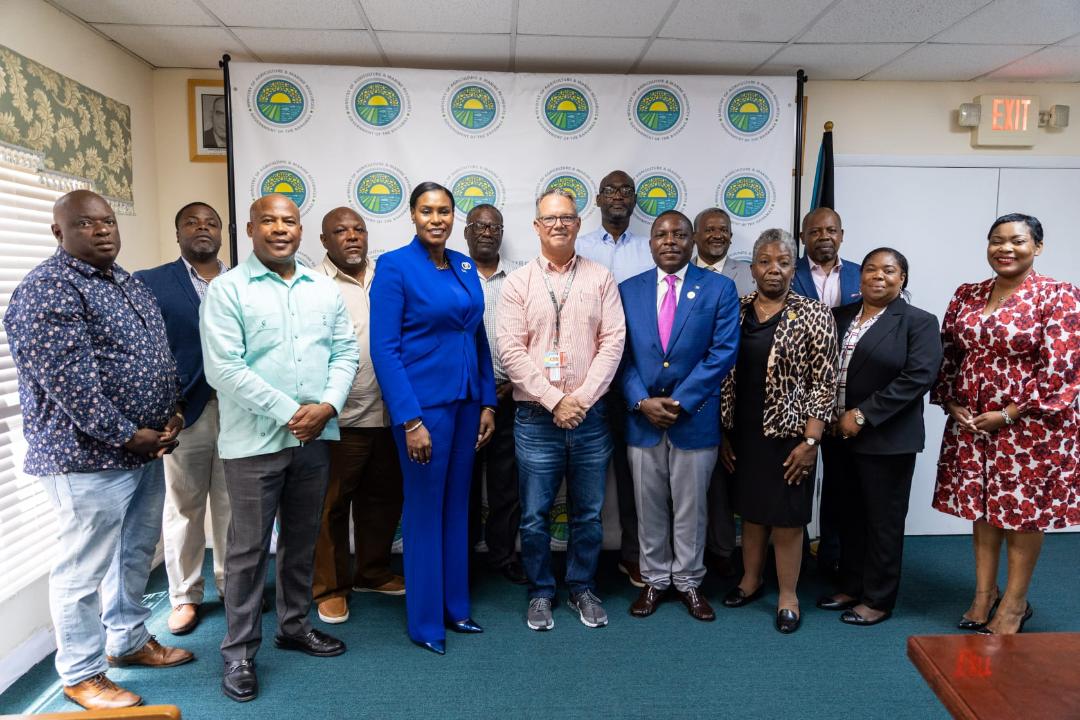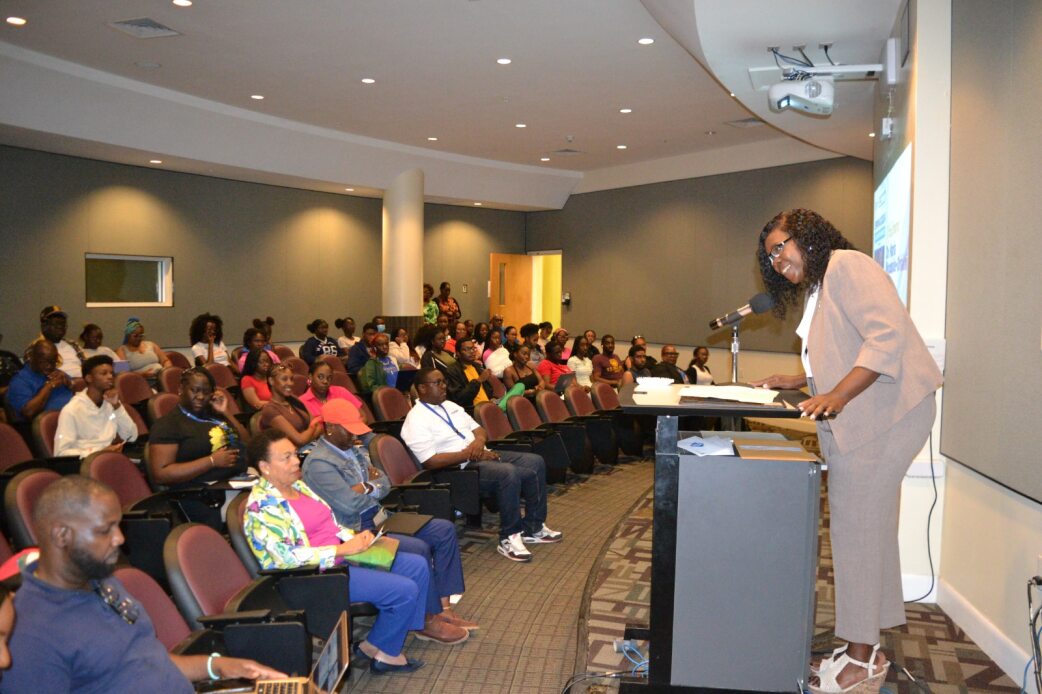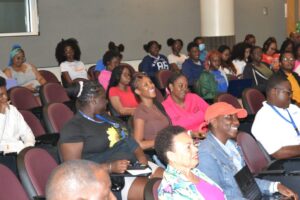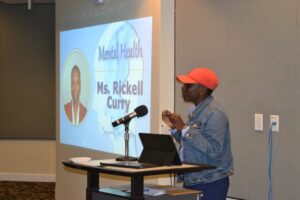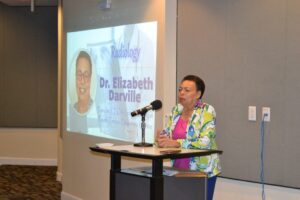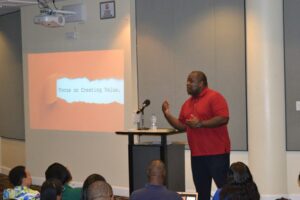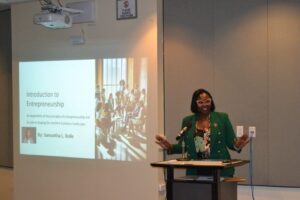#Washington, D.C., November 27, 2018 – U.S.A –
Intervention by
THE MOST. HON. DR. HUBERT A. MINNIS, O.N., M.P.
Prime Minister
COMMONWEALTH OF THE BAHAMAS
Inter-American Development (IDB)/
International Monetary Fund (IMF)/
World Bank (WB)
Conference – Building Resilience to Disasters and Climate Change in the Caribbean
“Improving Risk Transfer”
IMF Headquarters, Washington, D.C.
November 26th 2018
Like many other Caribbean countries, disasters in the Bahamas can have a large, direct impact on economic conditions through reduced productivity and increased national debt due to reconstruction costs.
For example, as a result of Hurricane Mathew in 2017, The Bahamas Government initially borrowed $150 million and made allocations for capital works, and transfers and subsidies for relief and reconstruction.
 This widened the fiscal deficit from an estimated 1.0 per cent of GDP in 2016/17 before Hurricane Matthew to 1.9 per cent of GDP after Matthew. This represented an $81 million increase in the deficit after the hurricane.
This widened the fiscal deficit from an estimated 1.0 per cent of GDP in 2016/17 before Hurricane Matthew to 1.9 per cent of GDP after Matthew. This represented an $81 million increase in the deficit after the hurricane.
Subsequently, we recognized that in post-disaster relief and recovery, we should have the resources and means at our disposal to finance our direct contingent liabilities more efficiently, and to be better able to provide additional aid to small businesses and low-income farmers, who are disproportionally impacted by disasters.
As the frequency and severity of disasters increase due to climate change, the intensified shocks could create debt burdens on future generations, and erode development progress.
The need for us to understand our fiscal risk and for us to create cushions against adverse economic impacts is more urgent than ever, and this highlights the importance of developing risk financing strategies and transfer mechanisms to avoid reliance on public debt.
We also need to promote insurance solutions for homeowners. The possibilities of introducing natural disaster insurance for homeowners are as varied as the disaster management strategies of different countries.
There is no single ideal or universally applicable solution for homeowner’s disaster insurance. Each country must find and adapt a model that best fits its exposures, existing insurance market infrastructure, institutional set-up and political acceptability.
The solutions in place in different countries range from comprehensive compulsory natural disaster covers offered by government-sponsored insurance entities to privately organized voluntary disaster insurance products.
However, pooling of risks at the regional level may be the solution to overcome any shortcoming in any particular country.
We are cognizant that ex ante instruments are the most effective and efficient means of governments practicing self-insurance.
Ex ante instruments require proactive advance planning and includes reserves or contingency funds, budget contingencies, contingent debt facilities, and a range of insurance or other risk-transfer products.
These risk transfer instruments that transfer contingent liabilities to the market or other agencies make it harder to game the system for political reasons.
They will be triggered only in particular circumstances and are more easily directed to the plans they were meant to finance.
Further, they require less discipline by the user because discipline is built into the rules of the contract and is part of the service provided.
Even though we are aware of the many benefits on improving risk transfer there are still a number of challenges in accomplishing this task.
 One such challenge is that policymakers often have difficulty in obtaining political and economic commitment due to other competing needs and priorities.
One such challenge is that policymakers often have difficulty in obtaining political and economic commitment due to other competing needs and priorities.
While many agree that reducing disaster risks is important for saving lives and property, few countries such as the Bahamas have appropriate measures in place because other policy issues require greater attention and funding.
This has resulted in the insufficient earmarking of financial resources for risk transfer measures. Policymakers are in need of clear evidence, including cost-benefit analysis, to convince the public and various stakeholders that a commitment to risk transfer is as practical and necessary as any other priority.
Additionally, the liquidity secured through sovereign risk transfer requires a pre-existing targeting and distribution infrastructure, such as a social protection mechanism, which is underdeveloped in the Bahamas.
Therefore substantial investments in targeting and distribution infrastructure, and in enabling markets may need to be made alongside securing financing against risk.
This suggests the need for a high level of commitment and coordination across investments.
Risk prevention and mitigation strategies must be the first priority in managing natural disasters. But no organization or country can fully insulate itself against extreme events. To enable and sustain growth, transferring catastrophic risk must therefore be a key element in the financial strategy of every disaster-prone country or region.
We must recognize that “financial resilience is a critical component of disaster management” because the immediate availability of funds to finance the necessary disaster response and recovery is critical to take appropriate action for individuals, businesses and governments.
There is little awareness among decision makers, disaster management authorities and potentially affected households, businesses and governments about the role insurance instruments can play. The donor community can also play key complementary roles in the development of catastrophe insurance solutions for developing countries.
These roles include: helping to subsidize insurance premium in the context of a country putting together a sound macro-fiscal framework, and increasing the capitalization of CCRIF, so that insurance premium come down automatically.
In terms of convening power, the World Bank and other IFIs can play a catalytic role in the development of efficient partnerships among countries, donors, and private markets for the financing of catastrophic risks.
Donors can play a major role in financing public goods that contribute to the creation of a risk market infrastructure, which facilitates the development of market-based risk financing solutions.
Public goods include information collection and management systems, catastrophic risk assessment programs, risk modeling development programs, awareness and education campaigns, and institutional capacity building.
By being the provider of technical assistance for innovative catastrophe insurance solutions, donors can promote the emergence of innovative risk financing solutions, including index-based insurance products, national and regional catastrophe insurance pools (for example, TCIP, CCRIF), and risk transfer vehicles (such as reinsurance, catastrophe bonds, weather derivatives).
IFIs such as the IMF can help to subsidize insurance premium in the context of a country putting together a sound macro-fiscal framework.
For example with the assistance of the IMF and CARTAC, the Bahamas has passed Fiscal Responsibility Legislation which aims to bring discipline to the Government’s fiscal agenda with a view to attaining future fiscal surpluses.
 With this in our tool kit, the Government has pledged to set aside two to three percent of these surpluses in a fund that can be used to pay the CCRIF premiums and assist to rebuild after a natural disaster.
With this in our tool kit, the Government has pledged to set aside two to three percent of these surpluses in a fund that can be used to pay the CCRIF premiums and assist to rebuild after a natural disaster.
Moreover, public intervention in catastrophe insurance markets, supported by the donor community and the World Bank, should be country-specific.
Low income countries, where the domestic non-life insurance market is undeveloped, should focus in the short term on the development of sovereign catastrophe insurance solutions and the promotion of public goods related to risk market infrastructure.
These countries are usually not developed enough for the promotion of catastrophe insurance pools for private homeowners.
Middle-income countries, where the domestic non-life insurance market is more developed, should help the private insurance industry offer market-based catastrophe insurance solutions to homeowners and to small and medium enterprises, including those in agricultural and fisheries industrie
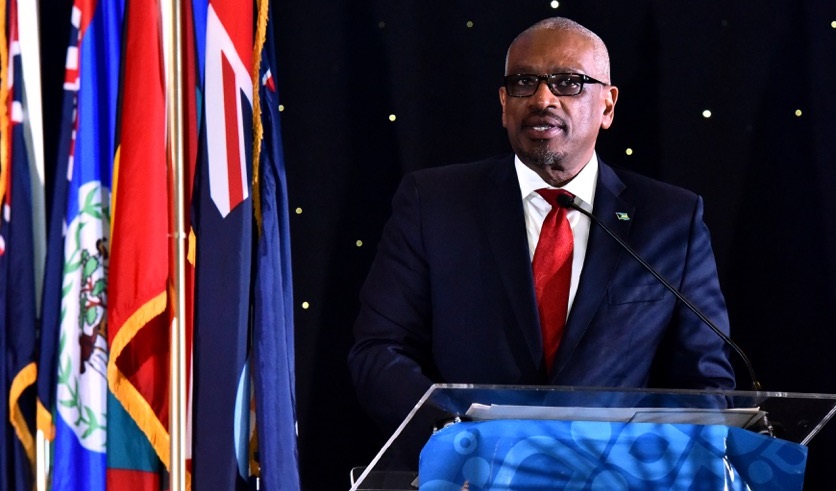

 News7 days ago
News7 days ago
 Health7 days ago
Health7 days ago
 TCI News3 days ago
TCI News3 days ago
 Caribbean News6 days ago
Caribbean News6 days ago
 Education6 days ago
Education6 days ago
 Caribbean News1 week ago
Caribbean News1 week ago
 Caribbean News6 days ago
Caribbean News6 days ago
 Bahamas News1 week ago
Bahamas News1 week ago





